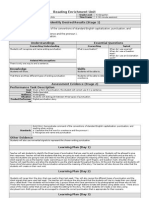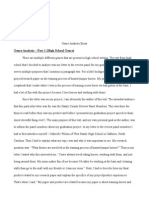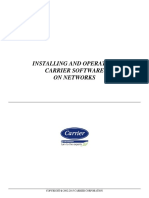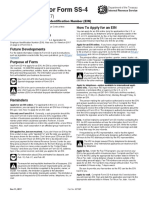0 ratings0% found this document useful (0 votes)
32 viewsParents
Parents
Uploaded by
api-265684897Copyright:
© All Rights Reserved
Available Formats
Download as DOC, PDF, TXT or read online from Scribd
Parents
Parents
Uploaded by
api-2656848970 ratings0% found this document useful (0 votes)
32 views2 pagesOriginal Title
parents
Copyright
© © All Rights Reserved
Available Formats
DOC, PDF, TXT or read online from Scribd
Share this document
Did you find this document useful?
Is this content inappropriate?
Copyright:
© All Rights Reserved
Available Formats
Download as DOC, PDF, TXT or read online from Scribd
Download as doc, pdf, or txt
0 ratings0% found this document useful (0 votes)
32 views2 pagesParents
Parents
Uploaded by
api-265684897Copyright:
© All Rights Reserved
Available Formats
Download as DOC, PDF, TXT or read online from Scribd
Download as doc, pdf, or txt
You are on page 1of 2
EDUC. 3627 READING GUIDE TEMPLATE.
(Each student reads one tet
!oo" read#n$ and one e%read#n$ &er 'ee" and co(&)etes th#s te(&)ate *or the $rou&
d#scuss#ons #n the 'or"sho&. Th#s act#+#t, contr#!utes to the *#na) -&art#c#&at#on -(ar"..
Name: Su-Sim Lim Date: 14/10/13
TITLE /0 Tet READING1
Marsh C. (2232. Cha&ter 374 5'or"#n$ e**ect#+e), '#th &arents46 In4 7eco(#n$ a teacher4
Pearson Educat#on Austra)#a. P&. 283%328.
T9REE P/INT: 0R/M T9E E%READING
T;/ <UE:TI/N: ARI:ING 0R/M T9E READING:1
1. Marsh begins by discussing the difference between arent in!"#!ement and articiati"n.
$here in!"#!ement "f arents in instigated by the sch""#s% articiati"n is ab"ut shared
decisi"n ma&ing between sch""#s and arents. 'n hist"rica# "!er!iew "f arenta#
articiati"n is then resented. (urtherm"re s"me "siti!e "utc"mes "f arenta#
articiati"n are resented such as greater imact "n chi#d de!e#"ments% arents ab#e t"
su"rt the teaching "f the c#assr""m% c"##ab"rati"n t" su"rt in and "ut "f sch""# #earning
and abi#ity "f arents t" "ffer secia# s&i##s. )hese are desirab#e "utc"mes f"r arenta#
in!"#!ement h"we!er it seems that in s"me sch""#s arents d" n"t wish t" be in!"#!ed in
their chi#dren*s educati"n. $hen + was "n #acement it was e,treme#y difficu#t t" determine
arents "ini"n "f the !a#ue "f sch""#ing. +t seemed e!ident fr"m the ""r attendance "f
students that arents did n"t !a#ue sch""#ing. )he difficu#ties with ha!ing these
c"n!ersati"ns were enhanced by the #anguage barriers.
-. Marsh c"ntinues t" describe further benefits "f arenta# in!"#!ement% such as the abi#ity f"r
arents t" gauge a sense "f aathy f"r the teacher*s r"#e. + be#ie!e this is in!a#uab#e t"
s"ciety as teachers are c"ntinua##y being m"c&ed. /th"se wh" can*t d"% teach0. 1arents
sh"u#d a#s" be ab#e t" ha!e a say ab"ut h"w their chi#dren are being educated% and are ab#e
t" 2udge ""r edag"gy. ("r e,am#e #isten t" re"rts fr"m their chi#dren and r"!ide
feedbac& t" the teacher and sch""# if necessary. )here are many ""rtunities f"r arents t"
be in!"#!ed in sch""#s. f"r e,am#e re"rting r"cesses% secia# e!ents% sharing ideas%
assisting in instructi"n and g"!ernance "f the sch""#. + thin& arents in!"#!ement can ha!e
a "siti!e imact "n sch""#s% but + can a#s" imagine h"w difficu#t it w"u#d be t" as& arents
t" ste away in certain circumstances.
3. )he in!"#!ement "f arents fr"m #"w s"ci"ec"n"mic fami#ies is discussed at it is suggested
that these arents may need e,tra enc"uragement t" bec"me in!"#!ed in the sch""#
c"mmunity. )hey "ften fee# as if their "ini"n is n"t !a#ued. )his is the res"nsibi#ity "f
teachers and "ther #eaders in the sch""# t" ma&e sure that a## arents fee# e3ua##y in!ited t"
be in!"#!ed and that their "ini"ns are !a#ued.
1. + w"nder what the biggest barriers are t" arenta# in!"#!ement in sch""#s4
-. 5"w can we enc"urage better arenta# in!"#!ement in sch""#s whi#st sti##
maintaining the abi#ity t" ma&e decisi"ns when arenta# articiati"n is
hindering #earning4
You might also like
- Brad Blanton Radical HonestyDocument309 pagesBrad Blanton Radical HonestyUda Lapau67% (3)
- Vampire Academy - FrostbiteDocument134 pagesVampire Academy - Frostbitebookfan123yoNo ratings yet
- Critical Literature Review Nursing ExampleDocument6 pagesCritical Literature Review Nursing Exampleeldcahvkg100% (1)
- Brad Blanton - Radical HonestyDocument312 pagesBrad Blanton - Radical Honestycontrarian_is_me81% (16)
- End-of-Unit - Grade 7 - Unit 1Document26 pagesEnd-of-Unit - Grade 7 - Unit 1Parris AndrewsNo ratings yet
- EXAM NSE6 ALL Fortimail by Whatsupp 0021655255099 All DumpDocument59 pagesEXAM NSE6 ALL Fortimail by Whatsupp 0021655255099 All DumpSamuel DiazNo ratings yet
- Elias Nation BuildingDocument9 pagesElias Nation BuildingferbalbiNo ratings yet
- Immigration Constructivist Unit - Laurie WangerinDocument17 pagesImmigration Constructivist Unit - Laurie Wangerinapi-256808346No ratings yet
- 4B-02-P87 (Malaysia)Document8 pages4B-02-P87 (Malaysia)Aliah JasminNo ratings yet
- Delphi Method2Document8 pagesDelphi Method2Katrina AgpoonNo ratings yet
- Reading Enrichment UnitDocument2 pagesReading Enrichment Unitmr03557No ratings yet
- Fieldwork Eld LessonDocument4 pagesFieldwork Eld Lessonapi-237881244No ratings yet
- Final Genre Analysis EssayDocument8 pagesFinal Genre Analysis Essayapi-237874916No ratings yet
- Information Literacy Lesson PlanDocument9 pagesInformation Literacy Lesson Plancurtisgay81No ratings yet
- Unit Plan Lesson 4 FinalDocument3 pagesUnit Plan Lesson 4 Finalapi-242412350No ratings yet
- Silabus: Sekolah: SMP........... Kelas: VIII (Delapan) Mata Pelajaran: Bahasa Inggris Semester: 1 (Satu)Document25 pagesSilabus: Sekolah: SMP........... Kelas: VIII (Delapan) Mata Pelajaran: Bahasa Inggris Semester: 1 (Satu)Andi SudihartoNo ratings yet
- A Radoiography of Present ValuesDocument4 pagesA Radoiography of Present Valuesamaria1No ratings yet
- La9 Regular Open Disclosure 13-14Document5 pagesLa9 Regular Open Disclosure 13-14api-243080555No ratings yet
- Community Lesson Plan 4Document3 pagesCommunity Lesson Plan 4api-240273723No ratings yet
- My Teaching Mirror - Marvin MontoyaDocument7 pagesMy Teaching Mirror - Marvin MontoyaMarvin1982MontoyaNo ratings yet
- Документ Microsoft Office Word nouDocument6 pagesДокумент Microsoft Office Word nouConstanta TarnaNo ratings yet
- Unit 14 - Two Little Kittens Focus Learning Standards ObjectiveDocument9 pagesUnit 14 - Two Little Kittens Focus Learning Standards ObjectiveNina Enna SulaimanNo ratings yet
- IELTS Writing Task 2Document65 pagesIELTS Writing Task 2Nariman Gahramanli100% (1)
- Unit 7 Ac Voc All WordDocument2 pagesUnit 7 Ac Voc All Wordapi-235883531No ratings yet
- Ayesha Jalals Democracy and Authoritarianism in South Asia A Comparative and Historical PerspectiveDocument9 pagesAyesha Jalals Democracy and Authoritarianism in South Asia A Comparative and Historical PerspectiveKhadija Tahir100% (1)
- Discussion Topics Unit 2Document7 pagesDiscussion Topics Unit 2Azni ZulaikhaNo ratings yet
- Lesson Lan For Mapeh Grade 9Document3 pagesLesson Lan For Mapeh Grade 9lienuj73% (11)
- The Legal Resume: Guidelines, Samples, and ChecklistDocument29 pagesThe Legal Resume: Guidelines, Samples, and Checklistsolinar_federationNo ratings yet
- Lesson Plan #2: Collaboration: Grade: 1st Social Studies Strand: Places and RegionsDocument5 pagesLesson Plan #2: Collaboration: Grade: 1st Social Studies Strand: Places and RegionslrcomstockNo ratings yet
- From Their Mistakes, As For Me I Learn From Mistakes of Fools". If You Master HistoryDocument4 pagesFrom Their Mistakes, As For Me I Learn From Mistakes of Fools". If You Master HistorySarah ZeidatNo ratings yet
- Lesson Plan GoodDocument4 pagesLesson Plan Goodapi-250196113No ratings yet
- Jesus and Social Media: /personality PaperDocument7 pagesJesus and Social Media: /personality PaperLadi SmiguraNo ratings yet
- Yearly Scheme of Work Yr 6Document34 pagesYearly Scheme of Work Yr 6juriahahmadNo ratings yet
- Bachelor's Degree Programme (BDP: Assignment 2013-14 (For July 2013 and January 2014 Sessions)Document7 pagesBachelor's Degree Programme (BDP: Assignment 2013-14 (For July 2013 and January 2014 Sessions)himparkhNo ratings yet
- Understanding Inclusive Learning and TeachingDocument7 pagesUnderstanding Inclusive Learning and TeachingValen CookNo ratings yet
- Action Research in Your ClassroomDocument12 pagesAction Research in Your Classroommr_n_manNo ratings yet
- Celta Pre-Interview TaskDocument3 pagesCelta Pre-Interview TaskEfl Idiomas0% (1)
- 396-1086-1-PBlacan Study PDFDocument20 pages396-1086-1-PBlacan Study PDFgaweshajeewaniNo ratings yet
- Nuerosicences Module Book Edited Final Dated 01-14 RepairedDocument41 pagesNuerosicences Module Book Edited Final Dated 01-14 Repairedapi-217141376No ratings yet
- Burke 408 ArgumentwritingassignmentDocument14 pagesBurke 408 Argumentwritingassignmentapi-252205959No ratings yet
- Summary English MethodsDocument18 pagesSummary English MethodsJuan Carlos LopezNo ratings yet
- Er Adds The Meaning of Agent/instrument)Document9 pagesEr Adds The Meaning of Agent/instrument)Anca VintilaNo ratings yet
- 521 Lesson Plan Personal Budget TaskDocument8 pages521 Lesson Plan Personal Budget Taskapi-256195885No ratings yet
- Trabajo - Skills 2014Document12 pagesTrabajo - Skills 2014Leandro GutierrezNo ratings yet
- Term Paper OF Cell Biology: Lovely Professional UniversityDocument15 pagesTerm Paper OF Cell Biology: Lovely Professional UniversityMedina Fadlilatus SyaadahNo ratings yet
- This I Believe Final Paper-Final VersionDocument9 pagesThis I Believe Final Paper-Final Versionapi-247150800No ratings yet
- Proposal Eka SusantiDocument7 pagesProposal Eka SusantiJessica MedinaNo ratings yet
- Lesson Plan #2: Collaboration: Grade: 1st Social Studies Strand: Places and RegionsDocument6 pagesLesson Plan #2: Collaboration: Grade: 1st Social Studies Strand: Places and RegionsZachary HaroNo ratings yet
- Scheme of Work Chemistry 2007 Week Learning Area Learning Objective Learning Outcomes NoteDocument9 pagesScheme of Work Chemistry 2007 Week Learning Area Learning Objective Learning Outcomes NoteKardianah KalingNo ratings yet
- Lesson Plan #2: Collaboration: Grade: 5 Social Studies Strand: HistoryDocument5 pagesLesson Plan #2: Collaboration: Grade: 5 Social Studies Strand: HistoryNancy VargasNo ratings yet
- Unit 6 A Future JobsDocument3 pagesUnit 6 A Future JobsTrương Nguyễn Diễm NgọcNo ratings yet
- Lesson Plan1 PhonogramsDocument10 pagesLesson Plan1 Phonogramsapi-242926820No ratings yet
- Pedagogy Seminar Fa 2014Document3 pagesPedagogy Seminar Fa 2014api-262143455No ratings yet
- Change Things To Climb Success LadderDocument3 pagesChange Things To Climb Success Ladderrksingh00722No ratings yet
- Analysis of Investment Decisions Submitted byDocument64 pagesAnalysis of Investment Decisions Submitted bymrchavan143No ratings yet
- Udl 1Document7 pagesUdl 1api-243492715No ratings yet
- Lab Sheet: Faculty of Engineering & TechnologyDocument13 pagesLab Sheet: Faculty of Engineering & TechnologyWae'l MohamedNo ratings yet
- Consultation and TransformationDocument21 pagesConsultation and Transformationfiona3bbNo ratings yet
- v-Myb proteins and their oncogenic potential: A study on how two point mutations affect the interaction of v-Myb with other proteinsFrom Everandv-Myb proteins and their oncogenic potential: A study on how two point mutations affect the interaction of v-Myb with other proteinsNo ratings yet
- Animated ABC's: Coloring Book & Letter Printing Practice for Early PrimariesFrom EverandAnimated ABC's: Coloring Book & Letter Printing Practice for Early PrimariesNo ratings yet
- Beyond the Box: Great tasting, budget friendly, easy to follow recipesFrom EverandBeyond the Box: Great tasting, budget friendly, easy to follow recipesNo ratings yet
- NO SCHOOL?? Enjoy a fun "Theme" Day: More than Two Dozen Ideas for Possible ThemesFrom EverandNO SCHOOL?? Enjoy a fun "Theme" Day: More than Two Dozen Ideas for Possible ThemesNo ratings yet
- Prac Report Maths PDDocument5 pagesPrac Report Maths PDapi-265684897No ratings yet
- Intro To Digestive l1Document3 pagesIntro To Digestive l1api-265684897No ratings yet
- Food Issue EssayDocument6 pagesFood Issue Essayapi-265684897No ratings yet
- Student Algebra Learning PlanDocument3 pagesStudent Algebra Learning Planapi-265684897No ratings yet
- What Comes in Your Mind When You Hear The Word: "Discounts"?Document35 pagesWhat Comes in Your Mind When You Hear The Word: "Discounts"?hamisahNo ratings yet
- Experiment No. 1 Physical Process: Name: Ariane Mamada Date: August 11, 2022 Yr & Section: 2 - V2A ScoreDocument17 pagesExperiment No. 1 Physical Process: Name: Ariane Mamada Date: August 11, 2022 Yr & Section: 2 - V2A ScoreAriane MamadaNo ratings yet
- EC8681 MPMC Lab ManualDocument259 pagesEC8681 MPMC Lab ManualLokesh KumarNo ratings yet
- Module 1c HRMDocument10 pagesModule 1c HRMJeffrey MayorNo ratings yet
- Topic 3: The Online Environment 3.1 The Internet and The World Wide WebDocument42 pagesTopic 3: The Online Environment 3.1 The Internet and The World Wide WebD S A DHAKA SPACE AGENCYNo ratings yet
- Installing and Operating Carrier Software On NetworksDocument11 pagesInstalling and Operating Carrier Software On NetworksFaquruddin AliNo ratings yet
- Drug Study SulfasalazineDocument2 pagesDrug Study SulfasalazineBunnie AlphaNo ratings yet
- So, Let's Talk About Discoveries and Inventi Ons. TelephonesDocument5 pagesSo, Let's Talk About Discoveries and Inventi Ons. TelephonesBrayan Gutierrez carrilloNo ratings yet
- Full Stack DeveloperDocument14 pagesFull Stack DeveloperSanthosh PerumalNo ratings yet
- English Verb Conjugation 3Document2 pagesEnglish Verb Conjugation 3elyas_t27No ratings yet
- Y S KX: (Total 1 Mark)Document5 pagesY S KX: (Total 1 Mark)Romeo SiriguNo ratings yet
- Gasgard XL Wall Mount Controller: Operating ManualDocument90 pagesGasgard XL Wall Mount Controller: Operating ManualCheloX LNo ratings yet
- Gate To Sovngarde TroubleshootingDocument2 pagesGate To Sovngarde TroubleshootingdoomgronthewitcherNo ratings yet
- Guide To Finances in Your 30sDocument34 pagesGuide To Finances in Your 30sRamya KrishnaNo ratings yet
- FRSG Application FormDocument4 pagesFRSG Application Formanwarshahphd2021No ratings yet
- Instructions For Form SS-4: (Rev. December 2017)Document6 pagesInstructions For Form SS-4: (Rev. December 2017)incognito1990No ratings yet
- Final PPT On Parle GDocument15 pagesFinal PPT On Parle GgaganNo ratings yet
- Equipment, Preparation and TerminologyDocument4 pagesEquipment, Preparation and TerminologyHeidi SeversonNo ratings yet
- Cluster PharmaDocument26 pagesCluster PharmaCorporate CentralNo ratings yet
- Burnout Revenge Strategy GuideDocument45 pagesBurnout Revenge Strategy GuideFranz MNo ratings yet
- Finance - JDDocument1 pageFinance - JDHarshil ShahNo ratings yet
- B F1040 Pages: 4: Answer Any Three Full Questions, Each Carries 10 MarksDocument4 pagesB F1040 Pages: 4: Answer Any Three Full Questions, Each Carries 10 MarksVaisakhan.A.SNo ratings yet
- PDF Grove Rt600e DLDocument20 pagesPDF Grove Rt600e DLCristhian Sullon SosaNo ratings yet
- Practical 3 - Muhammad Nasri Bin Muhammad AliDocument12 pagesPractical 3 - Muhammad Nasri Bin Muhammad AliSN1-0619 Muhammad Nasri Bin Muhammad AliNo ratings yet
- V2TEL User ManualDocument20 pagesV2TEL User ManualMarceloA.RodriguezNo ratings yet
- Chemistry Sba ProjectDocument10 pagesChemistry Sba Project4L Anisha SieudassNo ratings yet
- ABB Price Book 495Document1 pageABB Price Book 495EliasNo ratings yet





























































































